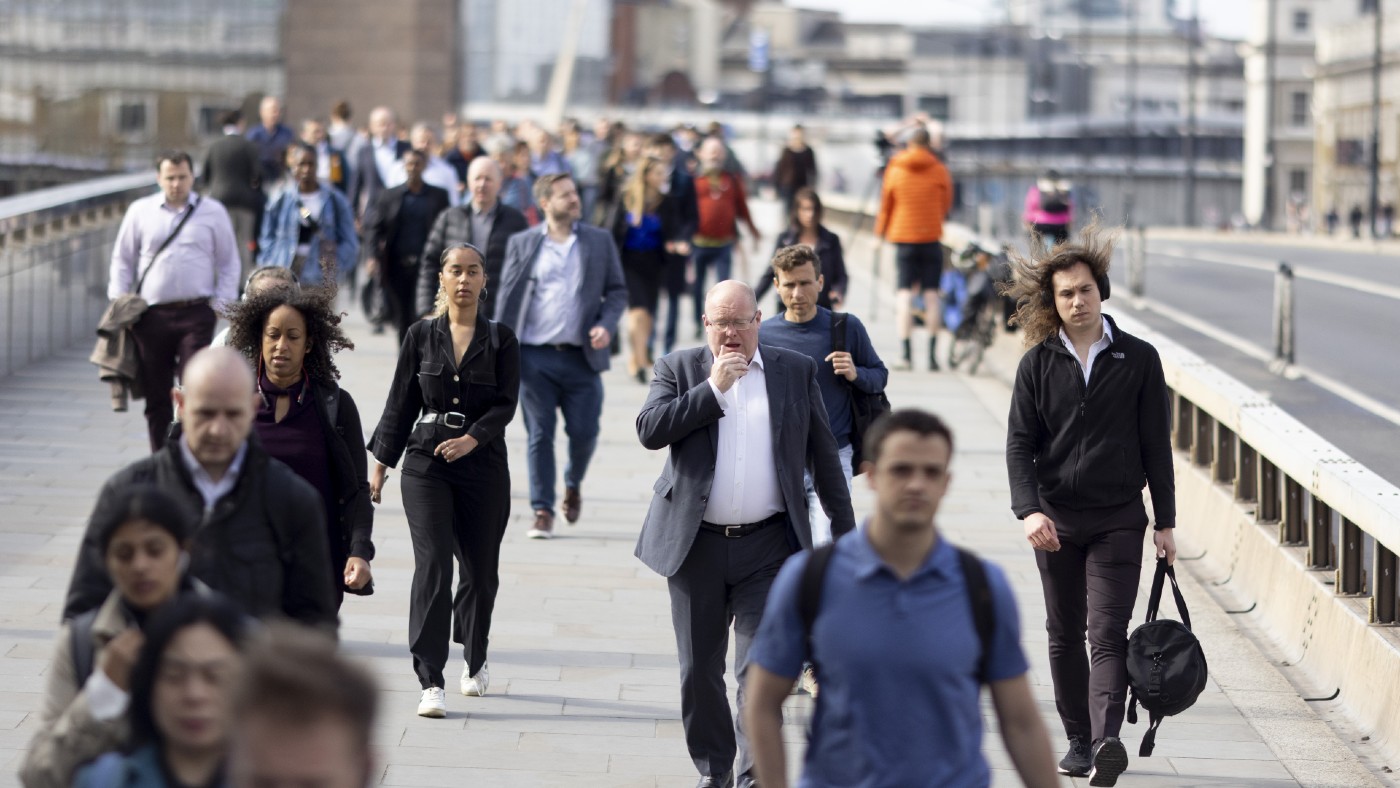Why real wages have suffered ‘their sharpest fall on record’
Even pay rises aren’t preventing workers from feeling worse off – and that’s a big problem

A free daily email with the biggest news stories of the day – and the best features from TheWeek.com
You are now subscribed
Your newsletter sign-up was successful
“Over the past six months, Britain’s unemployment figures have arguably been the economy’s saving grace,” said Kate Andrews in The Spectator. Headline unemployment has been at near-record lows, “keeping at bay the last factor that often ushers in dreaded ‘stagflation’”. And although the “extremely tight” labour market has been causing havoc for employers, the latest June update shows it is “loosening slightly” – the number of job vacancies appears to have peaked.
But all this is secondary to the “wage horror” playing out. The latest data from the Office for National Statistics reveals that real wages have suffered “their sharpest fall on record”. Workers are getting pay rises – the 4.7% increase in regular weekly pay between April and June is the highest seen in over a decade. “But what would be seen as meaningful hikes in normal times stand no chance of keeping pace with inflation” (now running at 10.1% and forecast to reach 13% this year). When even pay rises “aren’t preventing workers from feeling worse off”, ministers have every reason to be worried.
There are two ways of viewing the latest jobs figures, said Larry Elliott in The Guardian: glass half full, or empty. Ministers take the former view: Chancellor Nadhim Zahawi notes that the 3.8% unemployment rate “has rarely been lower in decades” and that “the economy continued to create net new jobs” in the quarter to June. And “with job vacancies still at near-record levels”, the labour market looks in good shape to withstand the forecast recession.
The Week
Escape your echo chamber. Get the facts behind the news, plus analysis from multiple perspectives.

Sign up for The Week's Free Newsletters
From our morning news briefing to a weekly Good News Newsletter, get the best of The Week delivered directly to your inbox.
From our morning news briefing to a weekly Good News Newsletter, get the best of The Week delivered directly to your inbox.
The half-empty view, by contrast, points to the slower pace of employment growth and the record gap between pay and inflation. Samuel Tombs of Pantheon Macroeconomics warns that demand for labour is stabilising just as the supply of workers is picking up.
The bottom line, said Ben Marlow in The Daily Telegraph, is that “the post-Brexit labour market is a malfunctioning mess”. True, factors such as the growing number of over-50s who have stopped working for good have contributed to “the greatest employment crisis in decades”. But Brexit remains “the elephant in the room”. The big question for the next PM “is whether to adopt a more liberal stance on migration in an attempt to get things moving”. In a Tory Party hopelessly divided on immigration, “that is not an easy [question] to answer”.
The labour market is likely to ease further as the economy softens, said Andrew Atkinson and Celia Bergin on Bloomberg. The looming slowdown will force more people to re-enter the workforce while reducing demand for new workers. While wage inflation remains rampant in a few sectors, the bargaining power of employees will be weakened
A free daily email with the biggest news stories of the day – and the best features from TheWeek.com
-
 What is the endgame in the DHS shutdown?
What is the endgame in the DHS shutdown?Today’s Big Question Democrats want to rein in ICE’s immigration crackdown
-
 ‘Poor time management isn’t just an inconvenience’
‘Poor time management isn’t just an inconvenience’Instant Opinion Opinion, comment and editorials of the day
-
 Bad Bunny’s Super Bowl: A win for unity
Bad Bunny’s Super Bowl: A win for unityFeature The global superstar's halftime show was a celebration for everyone to enjoy
-
 Currencies: Why Trump wants a weak dollar
Currencies: Why Trump wants a weak dollarFeature The dollar has fallen 12% since Trump took office
-
 Elon Musk’s starry mega-merger
Elon Musk’s starry mega-mergerTalking Point SpaceX founder is promising investors a rocket trip to the future – and a sprawling conglomerate to boot
-
 TikTok: New owners, same risks
TikTok: New owners, same risksFeature What are Larry Ellison’s plans for TikTok US?
-
 Will SpaceX, OpenAI and Anthropic make 2026 the year of mega tech listings?
Will SpaceX, OpenAI and Anthropic make 2026 the year of mega tech listings?In Depth SpaceX float may come as soon as this year, and would be the largest IPO in history
-
 Leadership: A conspicuous silence from CEOs
Leadership: A conspicuous silence from CEOsFeature CEOs were more vocal during Trump’s first term
-
 Ryanair/SpaceX: could Musk really buy the airline?
Ryanair/SpaceX: could Musk really buy the airline?Talking Point Irish budget carrier has become embroiled in unlikely feud with the world’s wealthiest man
-
 Powell: The Fed’s last hope?
Powell: The Fed’s last hope?Feature Federal Reserve Chairman Jerome Powell fights back against President Trump's claims
-
 Taxes: It’s California vs. the billionaires
Taxes: It’s California vs. the billionairesFeature Larry Page and Peter Thiel may take their wealth elsewhere